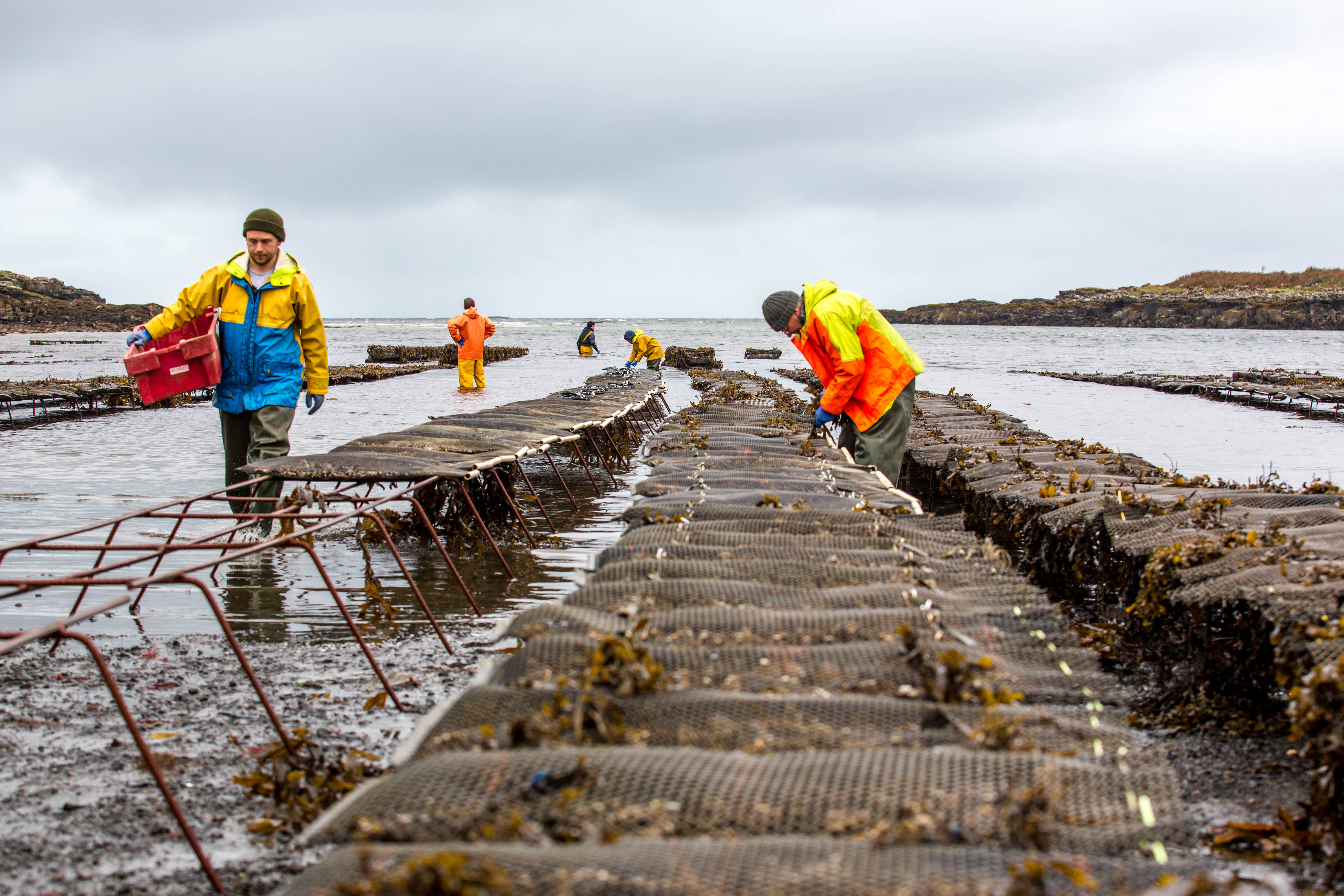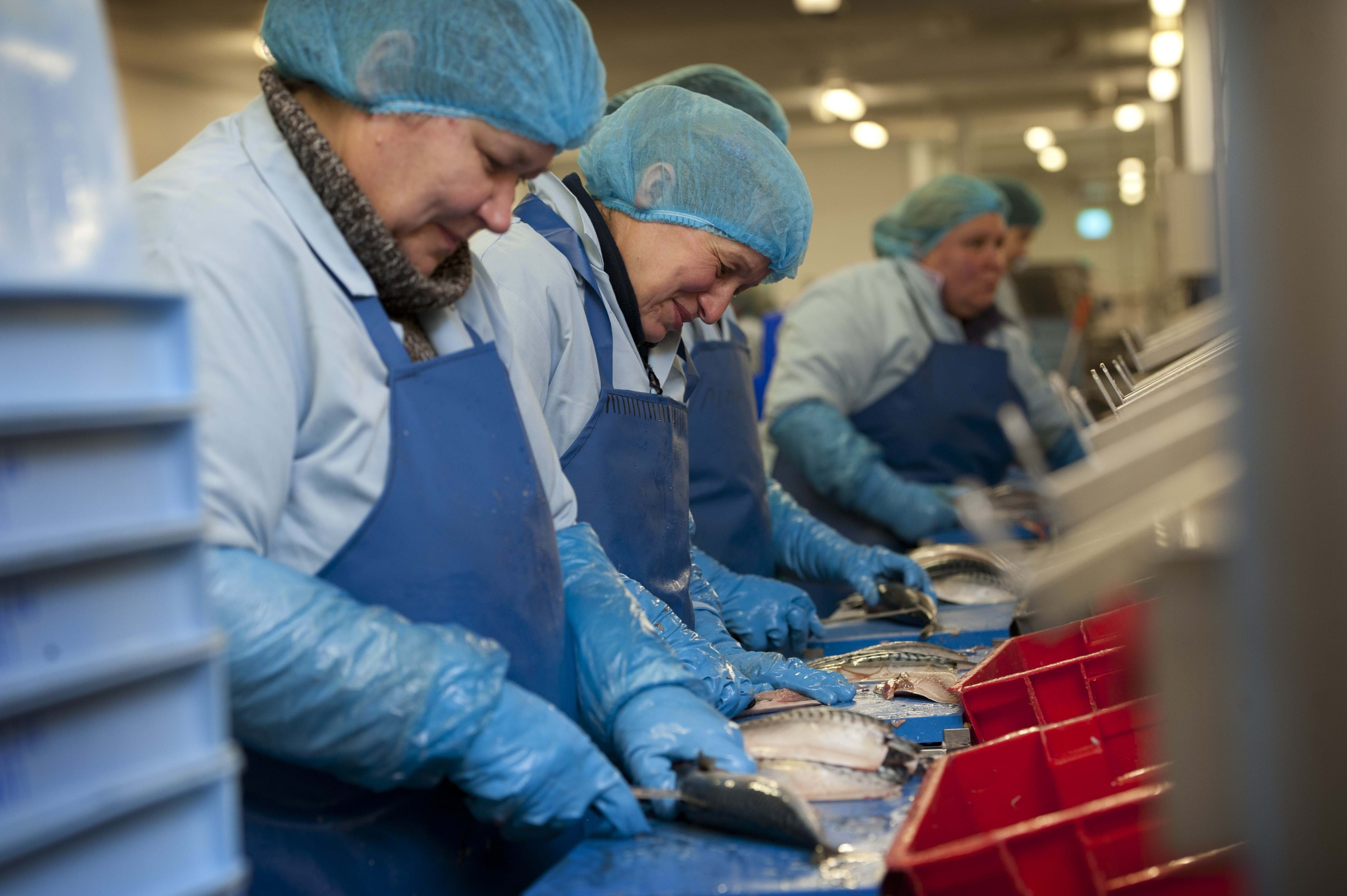Why seafood should be at the heart of food strategies
This week saw the release of the second report on the National Food Strategy for England from Henry Dimbleby. He was commissioned by government to carry out an independent review and set out a vision and plan for a better food system.

The release of this report gives us an opportunity to talk about the importance of food and food production systems but also the challenges that we face in the UK and globally. As populations increase, and as the role that diet plays in our long-term health and wellbeing is better understood, the pressures on our food production system and the wider environment will likely increase.
The report is an interesting and well researched account of the challenges faced. There are excellent insights into some of the social challenges associated with our food system; from the impact that the junk food cycle has on human health, to issues of inequality and deprivation, to the invisibility of nature in food production systems. However, working for an organisation that is focused on supporting the UK seafood industry, I was surprised that the role that seafood can play in addressing these challenges is not addressed. Seafood is side-lined with a one line explanation on page 6: “We have deliberately narrowed our focus onto the land.”
Those of us working in the seafood sector know all about the extremely positive contribution that seafood can make. It contributes to healthy eating (and reduced health costs), has a lower environmental impact than other animal proteins, and supports sustainable coastal communities.
We’re disappointed that the positive attributes of seafood do not feature more prominently in the report. Afterall the nation eats over 4 billion seafood meals each year. For us it’s clear that seafood has a vital part to play – both in providing a healthy food source and in future food security. Many in the seafood industry get out of bed every morning because we truly believe ‘seafood is the way forward’. It’s not just a clever strapline; it’s our reason for being because when the seafood sector thrives, the whole nation thrives.
Health benefits of seafood
Seafood offers a positive lifestyle choice, providing a variety of benefits to help fuel the nation. It’s convenient and easier to prepare than most people realise. It offers great options in terms of species, formats, flavours and textures. But most importantly, it can be incredibly good for our bodies, health and wellbeing, acting as a crucial part of a balanced diet.
Access to healthy food sources is vital. Our nation is facing significant health challenges and our diets are not helping. In 1980, 58% of UK household food expenditure was on fresh ingredients and adult obesity was at 7%. Today 57% of calories consumed in the UK are from ‘ultra-processed’ foods. This rises as high as 80% for one-fifth of the population. Adult obesity has risen to 28%.
These health factors have even greater significance following the challenges of the past year. Diet-related illness is one of the top three risk factors for dying of Covid-19. Health issues also have a significant draw on the NHS, so we need more early preventative measures.
Seafood’s value as a healthy food source shines through here. It is high in protein, packed with vitamins and minerals, and oily fish is especially rich in omega-3 fats. Seafood is the only protein with Public Health England backed consumption guidelines. Advice states that a healthy, balanced diet should include at least 2 portions of fish a week, with 1 of which being oily fish.
In the UK we are deficient in essential minerals and vitamins such as vitamin D, omega 3 and iodine - all of which are found in seafood. These are important for our wellbeing and can support women’s health in particular.
Research indicates that there are also significant benefits to be achieved from increasing seafood consumption. Soon to be published research from Seafood 2040 has looked at the socio-economic benefits of increasing seafood consumption in England. It suggests that the NHS could save up to £600m per year from reduced cases of type 2 diabetes and cancer over the long term. No other animal protein can make this claim!

Food security and sustainability
Our growing world population needs to be fed. The UK seafood sector is part of a vital global industry responding to this. Seafood provides around 3.3 billion people with almost 20% of their average per capita intake of animal protein.
As part of a flexitarian diet, seafood provides a solution to those wanting to reduce their meat consumption without turning to a more restrictive diet such as becoming a vegetarian or vegan. This was recognised in the Eat Lancet report.
Closer to home, there are real concerns about food poverty. Part of the major challenge to healthy eating is ‘levelling up’. We need to make access to healthy proteins more equal, particularly to those from disadvantaged backgrounds. Seafood comes in a range of formats and options; from frozen fish and tinned seafood products through to fresh shellfish there is a seafood option to satisfy every budget and appetite.
With growing global populations we need to look at the way we produce food to feed our nation. For this we need to build sustainability and resilience into our food production systems. All food production systems have some degree of environmental impact so innovation, scientific advances and sustainable resource management have a key role to play.
The good news is that there is already positive work underway across the UK seafood sector to build more sustainable and resilient supply chains. For example:
- The UK fishing fleet is supporting efforts to reduce ocean litter through the Fishing for Litter initiative and innovative projects around fishing gear recycling.
- The UK has numerous examples of the seafood industry, government and the research community working collaboratively to improve how our fisheries are managed. This includes Fisheries Improvement Projects (FIPs) covering nephrops in Scotland to monkfish in the South West, and new initiatives are underway to deliver improvements across our valuable shellfish fisheries.
- Measures are in place onboard fishing vessels to keep seabirds and marine mammals safe from fishing gear and to avoid unintentional bycatch.
- Fishing gear technology is being applied to minimise the impact that fishing can have on the seabed (innovative research is underway to develop low-impact scallop gear), to improve selectivity and to reduce discards (using fishing gear to enable smaller fish to escape).
- Industry is directly investing in science to improve knowledge and understanding of the health of our fisheries; from mackerel in the north east Atlantic to sardines in Cornwall.
- Sustainable aquaculture also offers another way to meet the food needs of our growing population as well as delivering wider environmental benefits such as improving water quality and carbon storage.
- The seafood processing sector is investing in research to reduce the use of single use plastics and to make sure that the packaging used to transport seafood can be recycled.
- Government and industry are partners in the Seafood 2040 programme, a long-term initiative to support the English supply chain toward a more thriving and sustainable future.

Reversing the decline in seafood consumption in the UK
Despite the benefits, seafood consumption in the UK doesn’t currently meet government guidelines. Average consumption is currently only 1.15 portions per person per week, rather than the 2 portions we should be eating. We eat on average 21 meals a week, so it’s disappointing to see that we are struggling to include seafood in just two or three of them. We also fall well short when compared with other nations like Iceland, Portugal and Spain.
The truth is that UK seafood consumption has been in gradual decline since the second world war, although there have been recent positive uplifts. This is something we’re trying to address with Love Seafood. It’s a long-term strategy to nudge the UK population along the right track to increasing their consumption by 2040.
Raising consumer awareness about the seafood we eat is critical. We need to positively influence attitudes and perceptions before we’ll change consumption. People need to understand:
- food provenance and its seasonality;
- how to shop more responsibly;
- how to store and prepare raw ingredients;
- and how to simply cook nutritious meals
Basically, the nation needs to reconnect with food – and seafood plays a vital role! We’re committed to increasing the consumption of sustainable and healthy seafood - creating a healthier, happier nation overall.
While we are disappointed that seafood has not featured more prominently in the National Food Strategy report we welcome many of its recommendations and will be working hard to ensure that seafood features prominently if they are taken forward.

Find out more
References:
Visit the National Food Strategy website
Visit the NHS website for guidelines on fish and shellfish
Visit the EAT-Lancet Commission on Food, Planet, Health website to download their report
Further reading:
Seafood’s omission from the National Food Strategy for England doesn’t mean there is no work underway looking at the future of the English seafood industry. The Seafood 2040 Strategic Framework is a plan for a seafood industry that is thriving and sustainable. Communication, innovation, and collaboration are the drivers resulting in research, workshops, and engagement to coordinate the good work already happening and in the pipeline. Visit the Seafood 2040 page on our website to find out more.
We looked at some of the challenges of global food securing in our ‘Can seafood feed the world?’ podcast. Visit our Seafood Horizons podcasts web page to find out more.